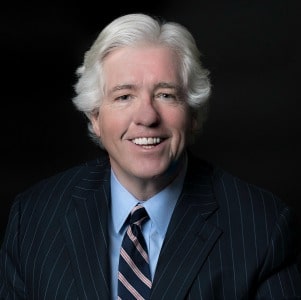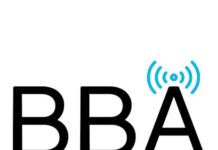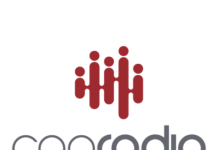
Former CBS Radio President/CEO Dan Mason says Peter Smyth is one of the great broadcasters of our generation. “He knows and takes to heart what serving the community means. His radio stations are always leaders in their markets and have been for many years.” That is quite a compliment from one of radio’s most successful leaders. Greater Media turns 60 this year and CEO Peter Smyth is behind the wheel steering that company. Smyth is also on the February 8 cover of Radio Ink magazine. We spoke to Smyth about the anniversary, radio, and his philosophy on leading people.
You would think a company that’s been around for 60 years would have had more than two CEOs. But that’s not the case at Greater Media: Peter Bordes, who founded the company, was the first CEO, and Peter Smyth runs the company now, and has since 2000. Greater Media was founded in 1956 with one radio station in Southbridge, Massachusetts, by Bordes and his Yale classmate Joseph Rosenmiller. Before Bordes passed away in 1999 of cancer, he crafted a winning vision for the company that continues today.
In 2016, the privately owned Greater Media owns 21 AM and FM radio stations in Boston, Charlotte, Detroit, Philadelphia, and New Jersey, and a group of weekly newspapers in central New Jersey. The company is stable. Revenue is growing. Employees are happy. And that’s all a result of the Greater Media culture. People enjoy working there and creating great local radio for their communities. And Peter Smyth is the person leading Greater Media to greatness.
RI: What was it about you that you believe made the people around you think, “OK, this person needs to be in management.”
Smyth: I think what they saw was that I kept challenging myself to make things better. I think what they liked was the innovation I have. And lack of fear. I made a lot of mistakes, and it was great to be at a company where you could do those things. But I think what they liked was my curiosity and my ability to get things done. Instead of watching things happen, I made things happen for them. That allowed me to become extremely successful in the organization, and not just because of me, but because of the men and women around me. I was able to attract great people and keep great people with me. It’s all about the people. You can talk about balance sheets until you’re blue in your face. A lot of the people that are there today have been with me a long time. And I’m very proud of what they do because without the men and women of Greater Media, there would be no Peter Smyth. I owe them a big debt of gratitude. I think what Peter Bordes, Sr. was impressed with was the people I brought to the table. I was never afraid to hire somebody that could take my job. I thought if I did that, I could raise the bar even higher. I constantly tried to find people like that. He gave me great autonomy. When I went to Magic, he said, “The station is not doing well.” When I got there, I read the P&L and thought, “Wow.” The next day, the book came out, and it was a 2.4 or a 2.5. Herb McCord’s great line was, “So now you’ve got the books. You want to stick around for the movie?” I thought, “Sure, that would be fun.” It was the freedom they gave me to figure it out. It taught me how to really run a business. I looked at the economics and the allocation of resources and how I was going to turn the station around. It was all about finding great people. That’s what the station needed, people, and a culture of winning. We had to believe that we were not “Tragic Magic.” We owned and operated like we were going to be the best, and we would strive constantly to get better. If something went south, we all went south. I would say to them, “I’m never going to ask you to do something I wouldn’t do.” I remember during the recession, around 2009, going out to Detroit when GM and others were going under, I would go out there and sit in the sales pen and look at the individuals and they would tell me about their neighbor’s husband being laid off or their car being repossessed and their house being taken. I would look at them and say, “You’ve got to believe that I believe we’re going to get through this.” And we did. But it was tough. It was those experiences that taught me that you had to be locally orientated and you had to be able to understand where they were coming from at every level. Starting as an AE and working my way up through a company was one of the best educations I ever had.
RI: What is your philosophy on how to treat people? Managers can have a positive or negative impact on an employee that can last a long time.
Smyth: I want to treat people the way I want to be treated. If Lee Bordes [Peter Bordes’ wife] woke up this morning and said, “I don’t like you, we need to make a change,” I would want her to treat me with dignity and let me resign and give me a compensation package that was equivalent to the contributions I made to the company. Change is going to happen. You can’t stop that. If the economy continues to contract, businesses are going to contract. It’s part of business. Nobody wants to do those things. Nobody enjoys that crap. I hate that kind of stuff. But I want to make sure that every family, every man and woman that would be affected by that, would be treated with dignity, with respect, and know that they had made a great contribution to this organization and that I was incredibly grateful to them. I would make sure they were treated the same way I want to be treated if somebody said, “We don’t need a CEO of Greater Media.”
RI: What is radio’s problem these days?
Smyth: I believe this strongly: The consumption level of radio has never been better. We just have to talk more about the strength of the industry, be more proactive versus reactive. When I look at the valuations of some of these pureplays, and I see no cash flow — when I wasn’t making money, I was called a dirt bomb. They don’t make any money, and they are heroes and they get more money. It’s the most unbelievable thing. We have positive cash flow. It’s great free cash flow, with great margins. The future is going to be in solutions-based selling. The national business is going to continue to decline. The economy is still pretty rough. We haven’t really had good growth over the past seven years. What I have found success at in our company is placing more emphasis on our local sellers, coming up with great ideas and great solutions for our clients — I know that sounds like the buzzword. Our over-the-air is very powerful. Our local personalities make the difference. What makes Greater Media a different company than all these pureplays is that we have all these local personalities talking about local issues in their cities. Preston and Steve in Philadelphia, Loren and Wally in Boston, Dave and Chuck in Detroit — these guys are doing 30 shares because they’re providing the listener with compelling information. We put our great content into podcasts or video. Listeners can time-shift, listen whenever they want. You have to adapt technology and bring it into your wheelhouse and then challenge yourself to figure out how it works in the consumer’s life. It’s not what we want to do, it’s what the consumer wants. We need to understand consumer behavior, how they use our stream, how they use our podcasts and our videos. How does that all fit into broadcast media in the 21st century, and how do we market that more efficiently? At the end of the day, it goes back to my retail days in 1977 at WROR. When I went into the car dealer on Monday morning after we ran a campaign, if I didn’t sell 12 cars, based on the multiples that we had for advertising dollars to sales, I was gone. I had to make sure we sold those cars. What I look at today, as long as radio can continue to move product the way it does, as long as you continue to do that at a better rate than most other media, you’re still going to be a valued partner to your client. And that’s what you have to show them. You have to go back and show them a recap of exactly what you did and the results. Everybody is so data-driven. But at the end of the day, you’ve got to sell the stuff. You have to be able to move product. I think radio does that more effectively than any other medium out there.
To subscribe to Radio Ink and download this special CRS issue of Radio Ink on your device immediately, go HERE





